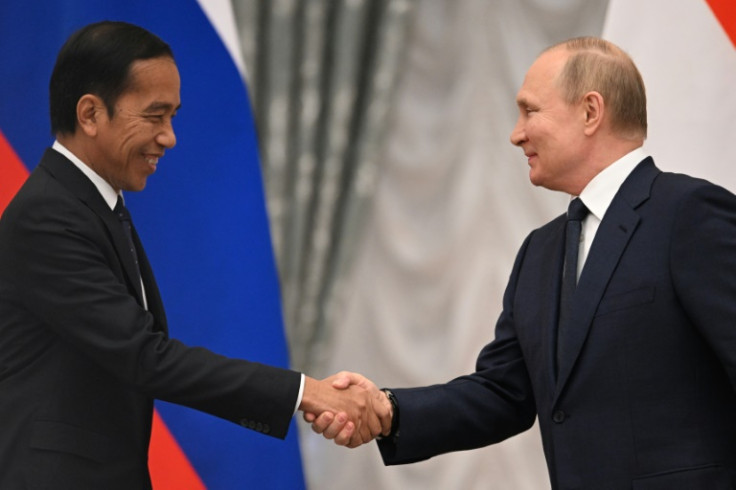Putin's Decision To Skip G20 Summit A Win For US, Allies, But Russia's War Remains Sticking Point
KEY POINTS
- The decision will enable the Russian president to avoid direct confrontation with the West
- G20 host Indonesia is hoping to put food and energy security at the center of the discussion
- Its president has expressed frustration that geopolitical tensions may overshadow the prospects of the summit
While the announcement that Russian President Vladimir Putin will not attend the G20 summit has ended months of speculation and may be seen as a major win by the U.S. and its allies, global friction due to the Ukraine war and Moscow's enduring relationships with some members is expected to make the final communiqué at the leaders' meet a tricky challenge.
Putin will not attend the G20 summit to be held on the Indonesian island of Bali on November 15-16, according to the Russian embassy in Indonesia.
"I can confirm that (foreign minister) Sergei Lavrov will lead the Russian delegation to the G20. President Putin's program is still being worked out, he could participate virtually," said Yulia Tomskaya, the embassy's chief of protocol, told AFP.
The Kremlin's decision will enable the Russian president to avoid a possible confrontation with the West and potential embarrassment over Moscow's war in Ukraine.
While the news of Putin not attending the summit will come as a major win for the West, which has been seeking to isolate Russia for its invasion of Ukraine, the Jakarta Post on Thursday reported that the G20 will struggle to reach an agreement on a final communiqué at its leaders' summit. Officials are yet to reach a consensus on many points, including wording on the Ukraine war, a German official told the outlet Wednesday.
This is evident from the lack of cohesion seen during various ministerial conferences and the fact that the forum is yet to announce a majority decision outlining the key issues to be discussed at the meeting.
Indonesian President Joko Widodo, who is hosting the summit, has already expressed his frustration that geopolitical tensions may overshadow the prospects of the summit.
"The G20 is not meant to be a political forum," Widodo told the Financial Times on Monday. "It's meant to be about economics and development."
Indonesia is hoping to put food and energy security at the center of next week's discussions — two issues that have become global concerns due to the Russian war in Ukraine. The G20 nations account for more than 80% of the world's gross domestic product (GDP) and 60% of the global population.
While the G20 comprises the G7 group of developed, industrialized economies, it also includes 12 developing countries, including nations that are part of the BRICS (Brazil, Russia, India, China, South Africa), along with the EU — which have 27 member-states.
While none of the G20 governments sided with Russia to oppose a UN General Assembly resolution that condemned Moscow's annexation of four Ukrainian regions last month, three key members — China, India and South Africa — abstained from the voting. The three nations share a strong partnership with Russia and convincing them to toe the West line on Ukraine will prove to be a tricky challenge.
On its part, even the host Indonesia has pledged to maintain neutrality, while emphasizing the opportunities for global cooperation offered by the G20.
Rejecting the calls made by the West and Ukraine to exclude Russia from the summit, the Indonesian president had also invited his Ukrainian counterpart Volodymyr Zelensky to the summit as a guest. While Ukraine is not a G20 member, Zelensky last week said he would not attend the event if Putin was present.

© Copyright IBTimes 2024. All rights reserved.






















